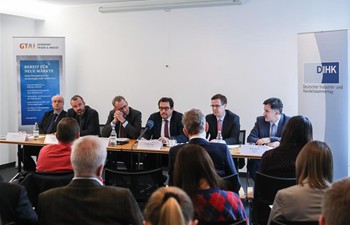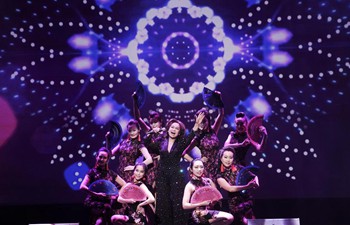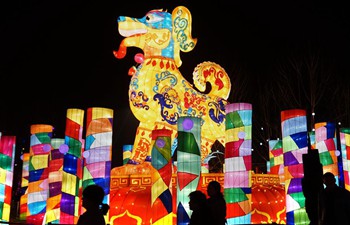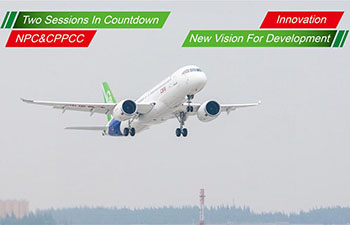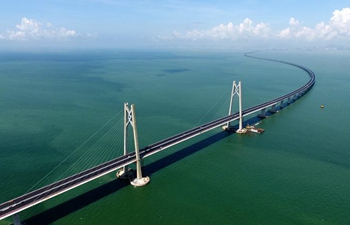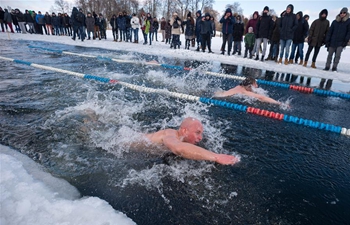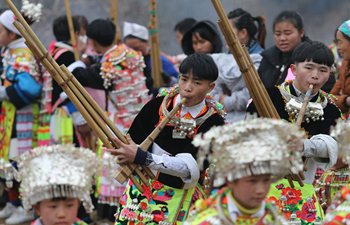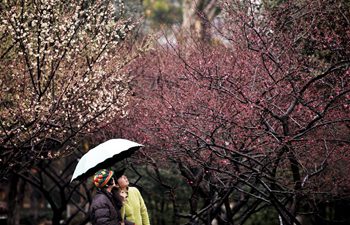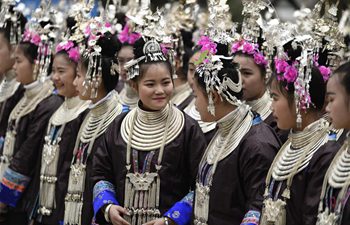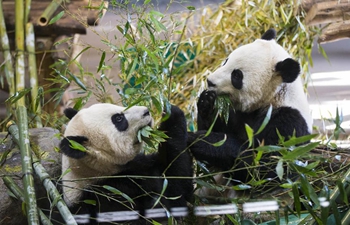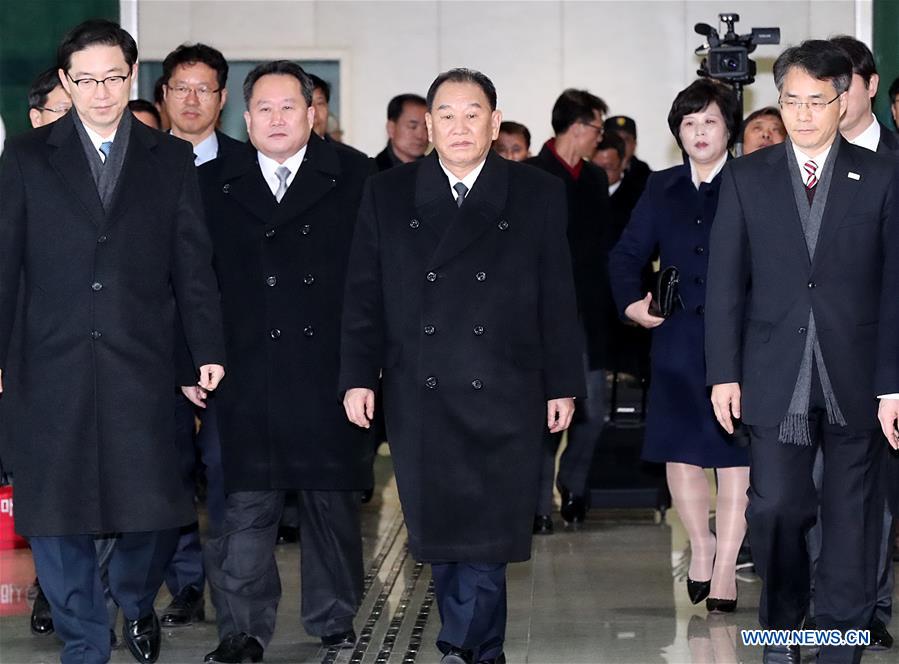
A high-ranking delegation led by Kim Yong Chol(C), vice chairman of the Central Committee of the ruling Workers' Party of Korea, arrives at the inter-Korean transit office in Paju, South Korea, on Feb. 25, 2018. The high-ranking delegation from the Democratic People's Republic of Korea (DPRK) arrived in South Korea Sunday to attend the closing ceremony of the 23rd Winter Olympics. (Xinhua/Newsis)
PYONGYANG, Feb. 26 (Xinhua) -- The Democratic People's Republic of Korea (DPRK) and South Korea on Monday agreed to further cooperate in pushing forward the efforts for inter-Korean detente in a balanced way to build lasting peace on the Korean Peninsula.
A high-level DPRK delegation which was visiting South Korea also promised to work with South Korea in enhancing inter-Korean ties in a sustainable manner.
According to a news release issued by South Korea, Kim Yong Chol, the chief DPRK delegate, said at a closed-door meeting with Chung Eui-yong, top national security advisor for South Korean President Moon Jae-in, that the DPRK would also keep doors open for future dialogues with the Untied States.
Kim, vice chairman of the Central Committee of the ruling Workers' Party of Korea, attended the closing ceremony of the PyeongChang Winter Olympics on Sunday evening before going to Seoul for talks with South Korean officials.
PYONGYANG DETERMINED TO MAINTAIN MOMENTUM
In a commentary published on Monday, the DPRK's official Korean Central News Agency (KCNA) said to improve the inter-Korean relations and ensure durable peace on the Korean Peninsula is an indispensable prerequisite for national reunification.
The two sides have grasped the opportunity of PyeongChang Olympics to start a peace process, which has led to the realization of visits by two high-level DPRK delegations to South Korea, and some early agreements to ease tension, such as opening communication lines between the two militaries.
"This year opened a dramatic opportunity of turn for peace, stability and reunification of the Korean Peninsula," said the KCNA in the commentary.
It also praised the international community for supporting the inter-Korean relations entering "a phase of reconciliation, unity and detente" from dangerous tension which lasted nearly one decade.
Meeting with the first delegation members when they returned from South Korea on Feb. 12, top DPRK leader Kim Jong Un expressed his willingness to further promote the momentum of inter-Korean detente.
WIDE SUPPORT BY SOUTH KOREANS
After successfully hosting the PyeongChang Olympics, the rate of approval of Moon has soared to a record high, showing wide support by South Koreans for the peace moves with the north.
Moon met with the two delegations without hesitation and expressed his intention to make breakthroughs in relations with the DPRK and maintain the process of rapprochement, despite opposition from some right-wing parties.
Moon has also won support from the international community, and was praised by International Olympic Committee President Thomas Bach for making the PyeongChang Olympics one of peace games which pushed the Olympics to a higher horizon.
KOREAN SPRING IN SIGHT?
After the 2018 Winter Olympics, many expect that a "Korean Spring" may be coming.
While many have expressed doubt whether the process can continue after the PyeongChang Olympics due to differences over how to handle the DPRK's nuclear and missile programs, the dramatic change of the situation on the Korean Peninsula so far this year has given enough reasons for optimism to some extent.
The KCNA said in the commentary that the DPRK will "bravely overcome all the adversities of history with concerted efforts of the nation and more vigorously struggle for durable peace on the Korean Peninsula and national reunification."
The commentary in the meantime expressed vigilance against efforts by forces in and outside the peninsula to derail the peace process.




